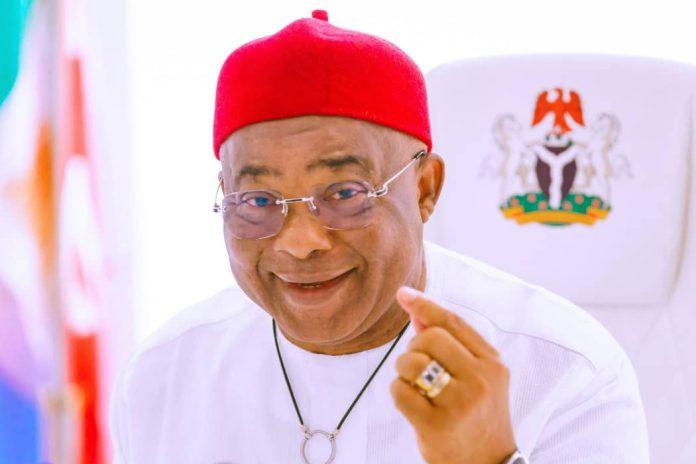Imo State Governor, Senator Hope Uzodimma, has called for the constitutional recognition of traditional rulers across Nigeria, describing their inclusion in the nation’s governance framework as “not a privilege, but a necessity for national stability.”
Speaking at the meeting of the National Council of Traditional Rulers of Nigeria (NCTRN) held in Lagos, Uzodimma lamented that the 1979 Constitution stripped traditional rulers of their defined constitutional roles, an omission he described as “a failure that should be immediately rectified.”
“The time has come to make it right,” he said. “And not necessarily by creating a new role, but by giving legal status to what already exists.”
The governor, who delivered the keynote address at the event, titled “The Traditional Institution: The Imperative of Its Inclusion in Effective and Efficient Governance in Nigeria,” explained the enduring relevance of traditional rulers in peacebuilding, dispute resolution, cultural preservation, and community development.
According to him, traditional leaders “have continued to carry out responsibilities essential to the stability, cohesion, and governance of our communities,” even without legal backing. “Their relevance,” he noted, “is not in question, was never in doubt, and would never be in doubt. What is questionable is the failure of the system to give legal backing to a role it already depends on.”
Uzodimma traced the historical trajectory of the traditional institution, recalling that under the 1963 Republican Constitution, traditional rulers held constitutional status. “The Oba of Lagos was listed as an ex-officio member of the Senate,” he said, “while the Northern, Western, Mid-Western, and Eastern Regions all had Houses of Chiefs as part of their legislative structures.”
He described the removal of these provisions under the 1979 and 1999 Constitutions as “a drift into informality” that diminished the formal role of traditional institutions.
The governor cited examples from other African nations, including Ghana, South Africa, and Namibia, where traditional rulers have been constitutionally recognised and integrated into modern governance systems. “If Ghana, South Africa, and Namibia, all with multi-ethnic, postcolonial histories, can give constitutional expression to their traditional institutions, why not Nigeria?” Uzodimma asked.
He emphasised that such recognition would not undermine the republican nature of Nigeria’s government but would rather strengthen community governance and ensure continuity between state and traditional structures.
Uzodimma also urged traditional rulers to maintain neutrality in partisan politics, noting that their moral authority depended on public trust. “You do not serve a party; you serve people,” he said. “That neutrality is not a weakness, it is strength. It gives credibility to your counsel and dignity to your institution.”
Reiterating his commitment to advocate for constitutional reform, the governor pledged: “If this matter comes before the National Assembly, or requires support at any level of government, I will stand with you without hesitation.”
He concluded by reaffirming the indispensability of traditional institutions to Nigeria’s unity and governance: “This institution has survived war, colonisation, military rule, and political instability. It is time the law recognises what history has already affirmed.”
“Your call for constitutional recognition,” Uzodimma said, “is not a demand for privilege. It is a demand for clarity.”


























